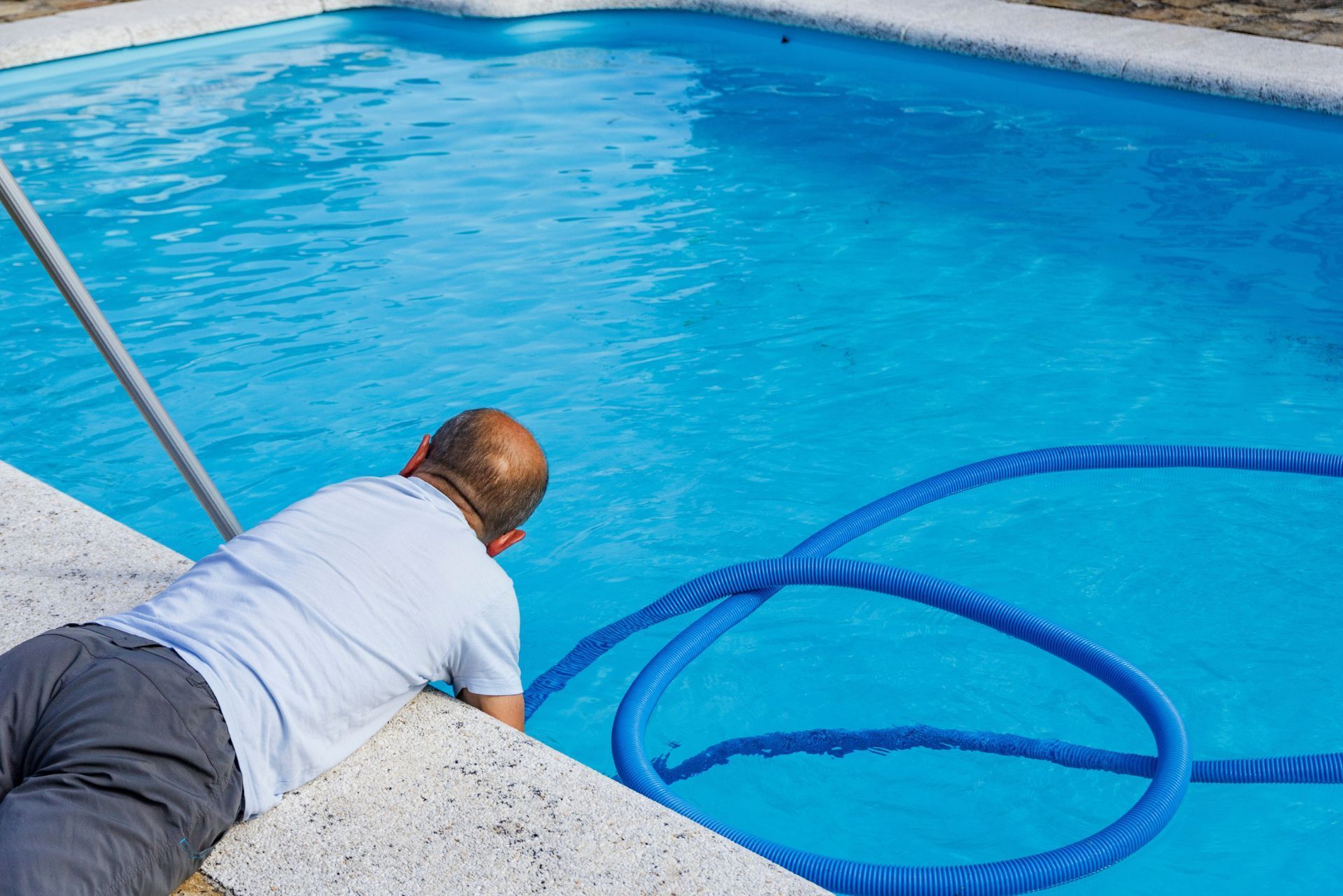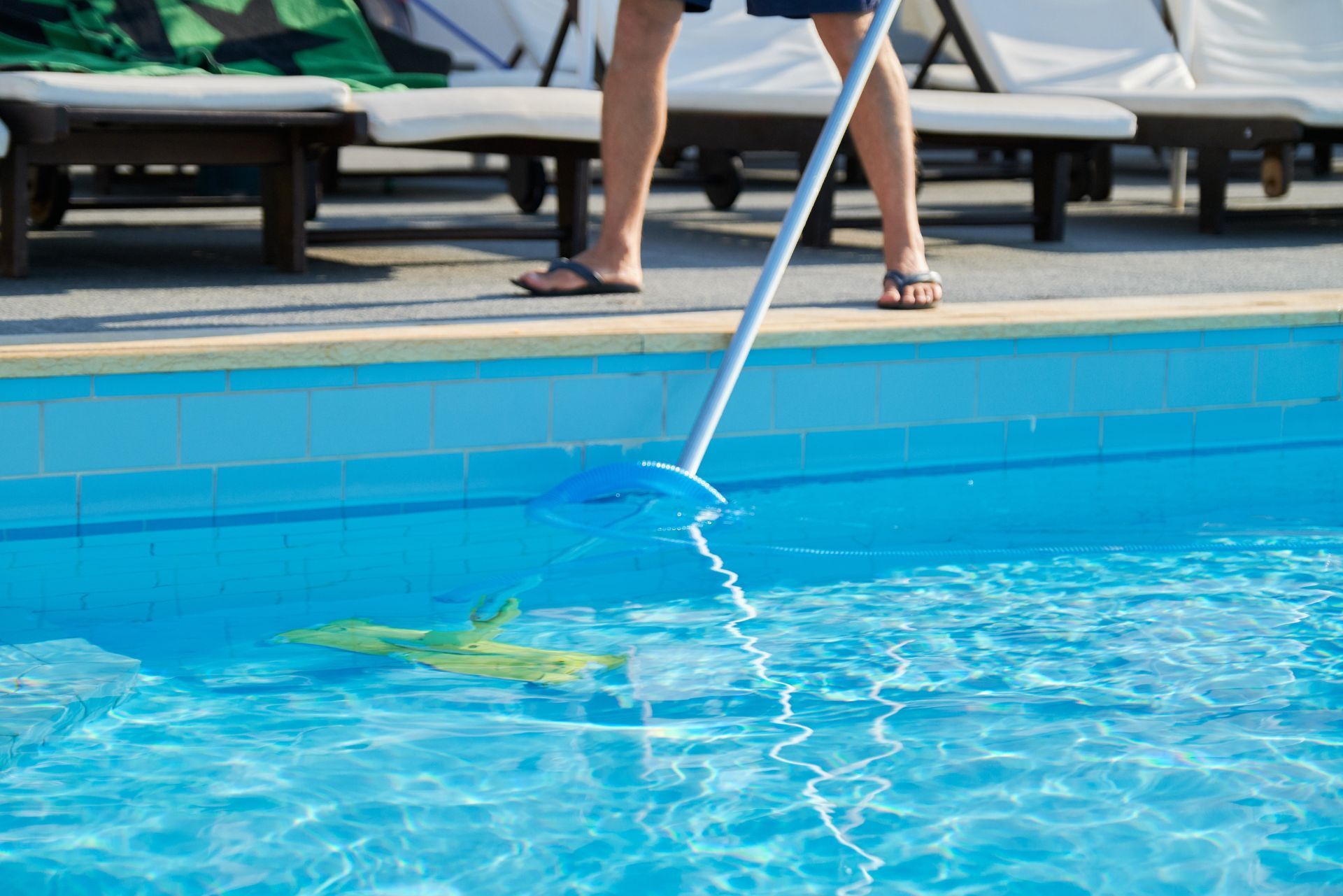Top 3 Recommended Policies

Florida is known for its sunny weather and beautiful pools, making pool ownership a popular choice among residents. However, maintaining a pool can be a significant responsibility, both in terms of time and finances. This is where pool maintenance insurance comes into play. Understanding the ins and outs of this type of insurance can help pool owners protect their investment and enjoy their pools without worry.
What is Pool Maintenance Insurance?
Pool maintenance insurance is a specialized form of coverage designed to protect pool owners from the costs associated with pool maintenance and repairs. This insurance can cover a variety of issues, from equipment breakdowns to liability claims arising from accidents that occur in or around the pool area. With the increasing popularity of home swimming pools, having this type of insurance has become a wise investment for homeowners who want to safeguard their property and ensure a worry-free swimming experience.
Types of Coverage
Pool maintenance insurance typically includes several types of coverage. These can vary by provider, but common types include:
- Property Damage: Covers damages to the pool structure, equipment, and surrounding areas.
- Liability Coverage: Protects against claims resulting from injuries that occur on your property, including the pool area.
- Equipment Breakdown: Covers the costs associated with repairing or replacing pool equipment, such as pumps, heaters, and filters.
Why is it Important?
Having pool maintenance insurance is crucial for several reasons. Firstly, it provides peace of mind knowing that unexpected expenses will be covered. Secondly, it can protect against potential legal issues that may arise from accidents. Lastly, it can help ensure that the pool remains in good condition, which is essential for safety and enjoyment. Additionally, many insurance policies offer coverage for seasonal maintenance, which can include inspections and necessary repairs before the swimming season begins, ensuring that your pool is always ready for use.
Moreover, pool maintenance insurance can also extend to cover damages caused by natural disasters, such as storms or
flooding, which can wreak havoc on outdoor pools. This aspect of coverage is particularly important for homeowners living in areas prone to severe weather. By having this insurance, pool owners can mitigate the financial burden of repairs and replacements, allowing them to focus on enjoying their pool rather than worrying about the costs associated with maintaining it. Furthermore, some policies may even offer discounts for homeowners who implement
safety features, such as pool covers or fencing, which not only enhance safety but also lower insurance premiums.

Factors Influencing Pool Maintenance Insurance Costs
The cost of pool maintenance insurance can vary widely based on several factors. Understanding these factors can help pool owners make informed decisions when selecting coverage.
Location
In Florida, the location of your property can significantly impact insurance premiums. Areas with higher crime rates or a greater number of pool-related incidents may result in higher costs. Additionally, regions prone to severe weather events may also see increased rates due to the higher risk of damage. For example, coastal areas that face hurricanes or tropical storms often see a spike in insurance costs, as the likelihood of wind and water damage increases. Furthermore, local regulations and zoning laws can also play a role; some municipalities may require additional coverage or specific types of insurance that could further influence the overall cost.
Type of Pool
The type of pool you own can also influence your insurance costs. In-ground pools typically require more coverage than above-ground pools due to their higher value and the complexity of their systems. Additionally, pools with unique features, such as waterfalls or spas, may also incur higher premiums. The materials used in the construction of the pool can also affect insurance rates; for instance, a fiberglass pool may be less expensive to insure than a concrete pool due to its lower susceptibility to damage. Moreover, the age of the pool and its equipment, such as pumps and heaters, can also impact costs, as older systems may be deemed more prone to failure and thus require more comprehensive coverage.
Safety Features
Installing safety features can help reduce insurance costs. Features such as pool covers, alarms, and fencing can lower the risk of accidents, which may lead to lower premiums. Insurance providers often reward pool owners who take proactive steps to enhance safety. For example, a well-maintained fence with self-closing gates not only protects children and pets but also demonstrates to insurers that the owner is responsible and committed to safety. Additionally, regular maintenance checks and documentation of repairs can further substantiate a pool owner's commitment to safety, potentially leading to additional discounts on insurance premiums. Some insurers may even offer incentives for completing safety courses or certifications, which can further reduce costs while enhancing the overall safety of the pool environment.
Common Exclusions in Pool Maintenance Insurance
While pool maintenance insurance can provide extensive coverage, there are common exclusions that pool owners should be aware of. Understanding these exclusions can help prevent surprises when filing a claim.
Negligence
Insurance policies typically do not cover damages resulting from negligence. For example, if a pool owner fails to maintain the pool properly, leading to damage or injury, the insurance may not cover the costs. Regular maintenance and adherence to safety standards are crucial to ensure coverage. This includes routine tasks such as checking chemical levels, cleaning filters, and ensuring that safety equipment is in place. Neglecting these responsibilities not only puts the pool in jeopardy but can also lead to serious liability issues if someone were to get injured due to the owner's oversight.
Natural Disasters
Many policies exclude coverage for damages caused by natural disasters, such as hurricanes or floods. In Florida, where severe weather can be a concern, it may be necessary to obtain additional coverage for these events. Homeowners should also consider the geographical risks specific to their area, as some regions may be more prone to earthquakes or tornadoes. Understanding the local climate and potential hazards can help pool owners make informed decisions about their insurance needs and ensure they are adequately protected against nature's unpredictable forces.
Wear and Tear
Normal wear and tear on pool equipment is usually not covered by maintenance insurance. Pool owners should budget for regular maintenance and replacement of parts to keep their pools in good condition. This includes not only the mechanical components like pumps and heaters but also the pool's physical structure, such as tiles and liners, which can degrade over time. Additionally, investing in a good maintenance plan can help identify potential issues before they escalate into costly repairs, ensuring that the pool remains a safe and enjoyable space for family and friends. Regular inspections by qualified professionals can also help extend the lifespan of pool equipment and prevent unexpected expenses down the line.
How to Choose the Right Pool Maintenance Insurance
Selecting the right pool maintenance insurance requires careful consideration of various factors. Here are some tips to help pool owners make the best choice.
Assess Your Needs
Before shopping for insurance, assess your specific needs. Consider the type of pool you have, its location, and any unique features that may require additional coverage. Understanding your needs will help you find a policy that fits your situation. For instance, if you own a heated pool or a saltwater system, these features may necessitate specialized coverage due to their distinct maintenance requirements and potential risks. Additionally, think about how often you use your pool and whether you host gatherings, as these factors can influence your insurance needs.
Compare Providers
Not all insurance providers offer the same coverage or rates. It’s essential to compare multiple providers to find the best deal. Look for companies with strong reputations and positive customer reviews. Additionally, consider reaching out to local agents who specialize in pool insurance. They can provide insights into regional risks, such as weather-related damages, which may not be covered by all policies. Furthermore, inquire about any discounts for bundling your pool insurance with other types of coverage, such as homeowners or liability insurance, which can lead to significant savings.
Read the Fine Print
Always read the policy details carefully before signing. Pay attention to coverage limits, exclusions, and any additional fees that may apply. Understanding the terms of the policy will help avoid surprises in the event of a claim. It’s also wise to ask about the claims process and how quickly claims are typically processed. Some insurers may offer a streamlined claims experience, which can be invaluable during stressful situations. Don’t hesitate to clarify any jargon or terms you don’t understand; a reputable provider will be more than willing to explain their policy in layman's terms to ensure you’re fully informed.
Maintaining Your Pool to Reduce Insurance Costs
Regular maintenance of your pool not only ensures a safe and enjoyable environment but can also help reduce insurance costs. Here are some maintenance tips that can lead to savings.
Regular Cleaning
Keeping the pool clean is essential for both safety and longevity. Regularly skimming debris, vacuuming the bottom, and maintaining proper chemical levels can prevent damage and reduce the likelihood of claims. A clean pool is also more inviting for guests, enhancing the overall experience. Additionally, maintaining clear water helps in detecting any potential issues, such as cracks or leaks, that might otherwise go unnoticed. Investing time in cleaning can also extend the lifespan of your pool’s surfaces and equipment, ultimately saving you money in the long run.
Routine Inspections
Conducting routine inspections of pool equipment and structures can help identify potential issues before they become significant problems. Look for signs of wear, leaks, or corrosion and address them promptly. Regular inspections can also help maintain the value of the pool. Furthermore, checking the pool's filtration system and pump regularly ensures they are functioning efficiently, which can lead to lower energy costs. Keeping an eye on the surrounding area, such as fences and gates, is equally important, as these features play a crucial role in safety and compliance with insurance requirements.
Winterizing Your Pool
In Florida, while winters are mild, it’s still essential to winterize your pool properly. This includes balancing the water chemistry, removing accessories, and covering the pool if necessary. Proper winterization can prevent damage during the cooler months and reduce the risk of costly repairs. Additionally, consider investing in a high-quality pool cover that can withstand the elements and provide extra insulation. This not only protects your pool but can also help maintain water temperature, reducing heating costs when you’re ready to reopen your pool in the spring. Lastly, don’t forget to check your pool's plumbing and equipment for any vulnerabilities that could be exacerbated by cooler temperatures, ensuring a smooth transition into the next swimming season.

Conclusion
Florida pool maintenance insurance is an essential investment for pool owners looking to protect their property and enjoy peace of mind. By understanding the types of coverage available, the factors influencing costs, and the importance of regular maintenance, pool owners can make informed decisions that enhance their pool experience. Whether it’s ensuring safety or managing costs, being proactive about pool maintenance and insurance can lead to long-term satisfaction and enjoyment.
As the pool season approaches, consider reviewing your current insurance policy or exploring new options to ensure you have the best coverage for your needs. With the right pool maintenance insurance, you can dive into the summer months with confidence, knowing that your investment is well protected.
Contact Us


